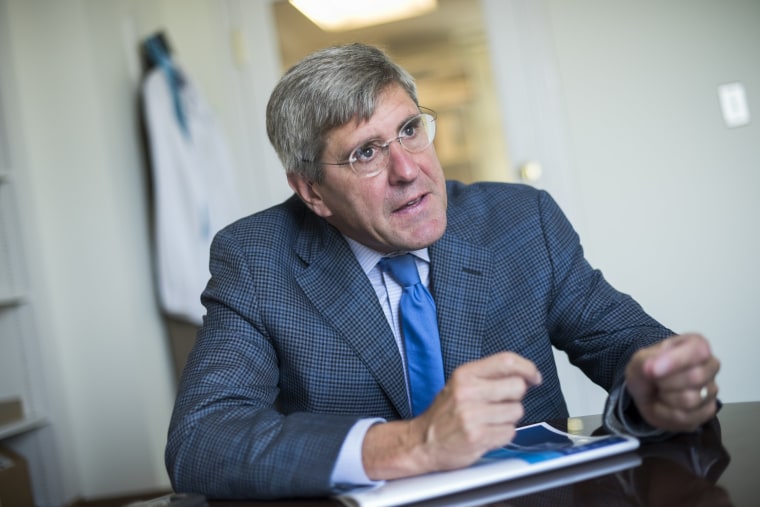We now know that Republican pundit Stephen Moore will not join the Federal Reserve's Board of Governors. Donald Trump wanted him for the position, and said he'd fight for Moore, but the commentator was done in by a combination of incompetence, ignorance, a total lack of qualifications, sycophantic partisanship, and a lengthy record of publishing offensive missives.
But before the political world moves on, it's worth pausing to appreciate who bears responsibility for this fiasco. To be sure, Stephen Moore is to blame for his own record, though in this case, it's Donald Trump who's to blame for choosing the pundit for the Fed in the first place without doing any due diligence.
Politico had a good piece on this overnight, explaining that the White House should've seen this mess coming.
Past administrations have historically spent weeks or even months trying to identify potentially damaging information about candidates for administration jobs -- long before their nominations are announced. Yet Trump's White House again appeared to neglect the basic vetting that has for decades been the cornerstone of the nomination process. [...]The Trump administration's long-standing vetting problems have contributed to a surge in doomed nominees.In total, Trump has withdrawn 62 nominees since taking office, according to data provided to POLITICO by the Partnership for Public Service, a nonprofit that tracks federal vacancies. At this point in his presidency, Barack Obama had withdrawn 30 nominees. The figures include only people who were formally nominated, so Moore and others who took themselves out of consideration before their official paperwork was sent to the Senate aren't counted.
If this were May 2017, the circumstances would still be embarrassing, leading to all kinds of chatter about "amateur hour" in the new White House.
But it's May 2019. Donald Trump and his team have been in office for more than two years. They're supposed to have some sense of how to handle tasks like these responsibly.
And yet, despite these expectations, the president and his operation actually seem to be getting a little worse -- as evidenced by the back-to-back failures of Herman Cain and Moore.
A former senior White House official told Politico, in reference to the president, "He's impatient and impulsive. When he makes a decision, he wants to move forward. There aren't any people around him urging caution."
It's that last part that struck me as especially important. As we recently discussed, Trump appears unrestrained at this point in his presidency. The ostensible grown-ups have left the White House; the hand-holding period is over; and what's left is a hapless president with no one willing to tell him, "This is crazy."
Just the opposite is true: Trump has now surrounded himself with officials who take pride in letting the president do as he pleases.
In Stephen Moore's case, Trump saw a poorly written op-ed; it told the president what he wanted to hear; and the president decided on the spot that the Republican pundit belonged on the Fed.
None of the considerations a responsible president would be expected to make ever entered the equation. The idea of vetting before tweeting apparently wasn't part of plan -- because in this dysfunctional White House, it never is.
Trump has assured Americans his operation is a "fine-tuned machine." He occasionally offers powerful evidence to the contrary.
